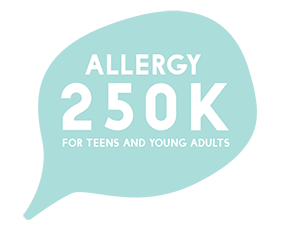Starting a family when you have food allergy
Top Tips For Starting a Family
- Speak to your allergist early in the pregnancy (or prior to falling pregnant) about managing anaphylaxis when pregnant. If you don’t have an allergist, get a referral to see one.
- Eat all foods (except the food you are allergic to and those not recommended for pregnant women) in moderation.
- Eat all foods (except the food you are allergic to) in moderation when breastfeeding.
- Introduce the common allergy causing foods during the first 12 months of life as this may help to prevent your baby developing food allergy. This includes the food you are allergic to but you may want to arrange for someone else to handle this food if you have any concerns.
- Reach out for help. If you’re concerned about your baby’s health, speak to a doctor or your allergist.
"If you have a food allergy, speak with your allergist when planning pregnancy so you have the information you need to manage both yours and your baby’s needs."
Starting a family is an exciting time but can also be a little stressful as it’s a new experience. There are things you need to consider for yourself as well as for your child when it comes to allergies.
If you are pregnant and you are at risk of anaphylaxis, you should talk with your allergist about how to manage your risk. Are there strategies you can implement for added safety?
You may also be thinking about what you can do to prevent your baby developing food allergy, or any allergy for that matter. If you and your partner have an allergy, there is an increased chance (60% chance) that your baby will have an allergy too.
You or your partner having food allergy does necessarily not mean that your child will develop food allergy, they may develop allergic rhinitis (hay fever) or eczema or no allergy at all. If you have some form of allergic disease but your partner does not, the risk of your baby having an allergy drops to about 30%.
Before you worry about the possibility of your child developing allergies, just remember that there is some guidance on allergy prevention.
Make an appointment with your allergist
Make a list of what you’d like to discuss with your allergist. Some helpful suggestions include:
- Managing anaphylaxis if you are pregnant. Your partner should also know what to do and it would be good for them to support you and go to the appointment too.
- Breastfeeding/bottle feeding and allergy prevention
- What foods to eat while you are pregnant and breastfeeding from an allergy prevention perspective.
- How to safely feed your baby a food that you are allergic to.
- Ask for helpful websites that won’t put you on the wrong path
Managing your pregnancy
Diet during pregnancy
After speaking with your allergist, you should have an idea of how you should go about your pregnancy and allergy management perspective.
In terms of diet during pregnancy, ASCIA recommends the following:
- Eat a healthy balanced diet, rich in fibre, vegetables and fruit.
- Follow the general advice for pregnant women about what foods are safe to eat when pregnant (e.g. avoid foods that may contain listeria).
- Only avoid the foods you are allergic to.
- There is no need to avoid any of the common allergy causing foods unless you are allergic to them.
- If you are not allergic to fish, eating up to 3 serves of oily fish per week may help prevent your baby developing eczema.
- Eat everything in moderation.
It is still OK to eat out and have others prepare your food while pregnant. However, you may want to be a little more cautious to reduce the risk of having an anaphylactic reaction while pregnant. After doing all your usual checks (i.e. disclosing your allergy, asking about food content and preparation etc) consider doing the ‘touch-test’ as an added safety strategy when eating a meal outside of the home.
The Touch Test
The touch test is a simple extra safety step you can take if you are unsure about a meal being served to you. Take a small fingertip amount of the food and place it just inside your lower lip. If you feel a tingling, swelling or burning sensation it is safer not to eat the food.
The touch test does not guarantee that the food is safe, however it is an extra precaution you can take.
What do I do if I have an allergic reaction while pregnant?
If you have an anaphylaxis while pregnant – DO NOT HESITATE to administer the EpiPen® or Anapen®. It is best to give the adrenaline (epinephrine) injector and look after your health as ultimately, the baby is relying on you being well. Speak with your allergist or GP if you are unsure about giving yourself adrenaline in an emergency. Remember, adrenaline is a hormone we all have but in anaphylaxis our body cannot produce enough adrenaline quickly enough to reverse the severe allergic reaction.
Breastfeeding
There is little evidence to suggest that breastfeeding can prevent allergies.
However, ASCIA recommends breastfeeding for at least 6 months and for as long as the mother and infant wish to continue. Some women have trouble breastfeeding, or choose not to, and that’s OK too.
If you’re unable to breastfeed – ASCIA recommends a standard cow’s milk formula is best. If, you have concerns about your baby developing an allergy to cow’s milk, speak with your allergist prior to giving the formula.
If you have fed your baby a food you are allergic too and then you breastfeed them, you may develop a mild allergic reaction on your nipple and breast. You may want to consider the timing of feeding your baby the food you are allergic to – perhaps breastfeed first or wait for a little while after feeding the food before breastfeeding.
Introducing solid foods
When you are ready to introduce solids to your baby, at around 6 months of age when your baby is ready (but not before 4 months). It is important to feed your baby the common allergy causing foods as well. Research, particularly for peanut and egg allergy, suggests that introducing the common allergy causing foods (such as peanuts, tree nuts and egg) prior to your baby’s first birthday can greatly reduce the risk of them developing a food allergy.
If you’re concerned about introducing a particular food, maybe it’s the food that either you or your partner is allergic to, ask your allergist for advice.
The Nip allergies in the Bub website developed by the National Allergy Strategy contains practical information about how and when to introduce the common allergy causing foods.
Manage your baby’s skin
If your baby has eczema, it is important to manage the eczema well. This may help prevent food allergies from developing by your baby being exposed to foods through their skin.
If you think your baby may have eczema, seek advice from your doctor early to make sure you are managing the eczema well.
For practical information about how to manage eczema in babies, visit the Nip allergies in the Bub website.
"If you have a food allergy, speak with your allergist when planning pregnancy so you have the information you need to manage both yours and your baby’s needs."

